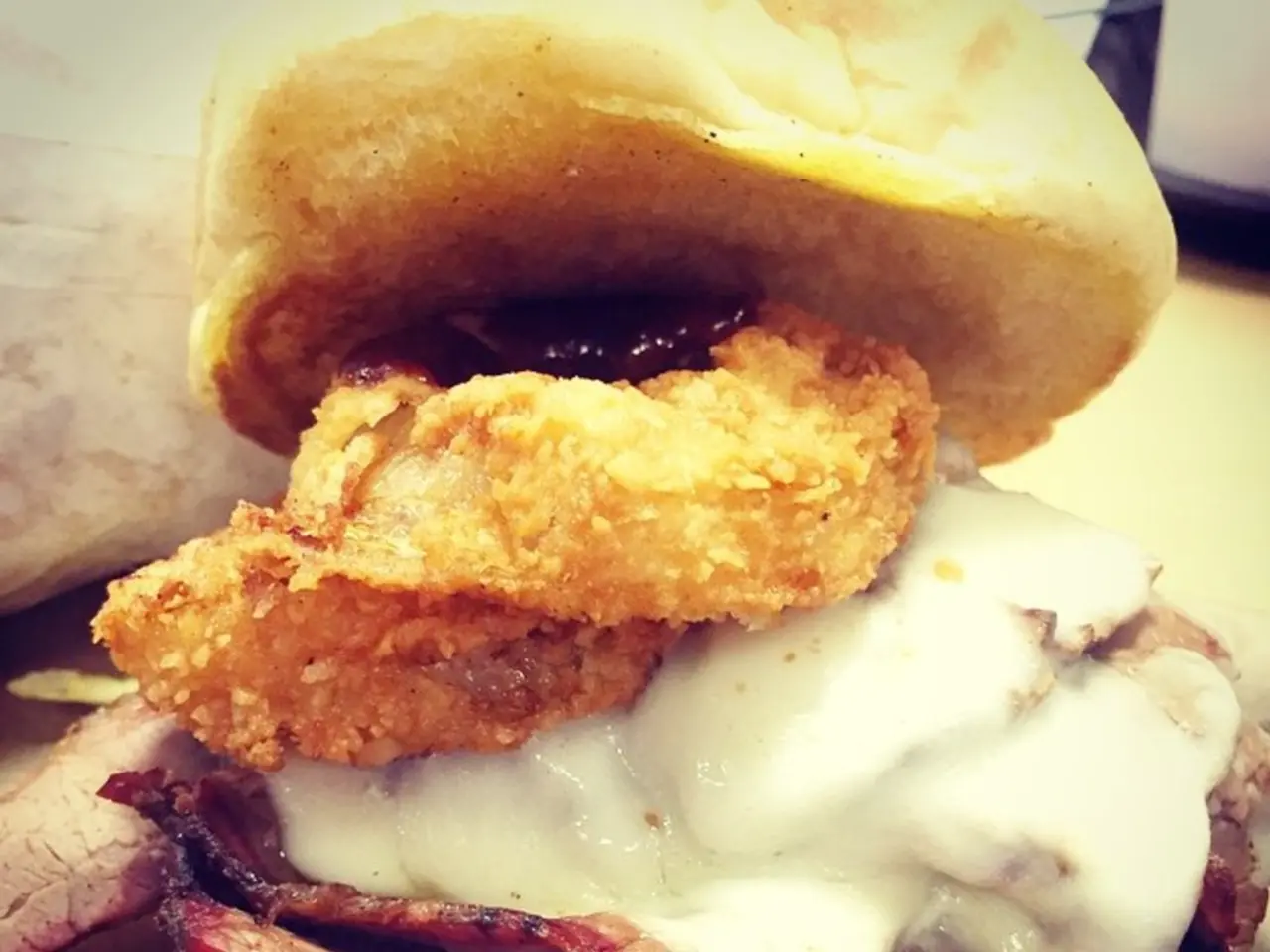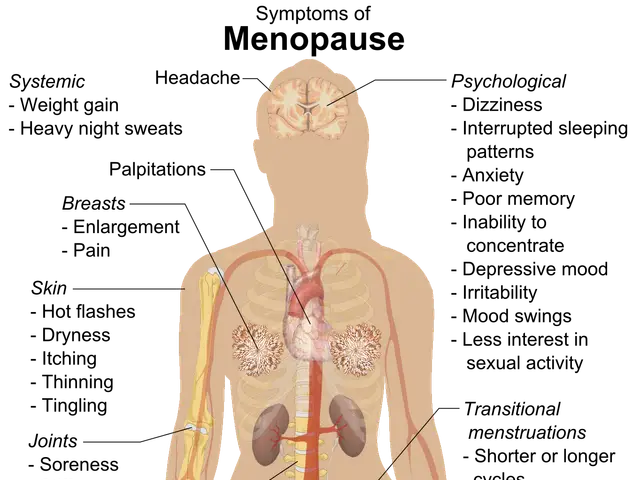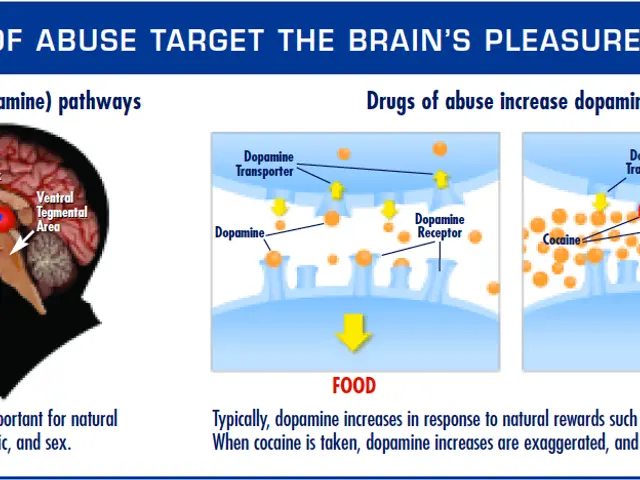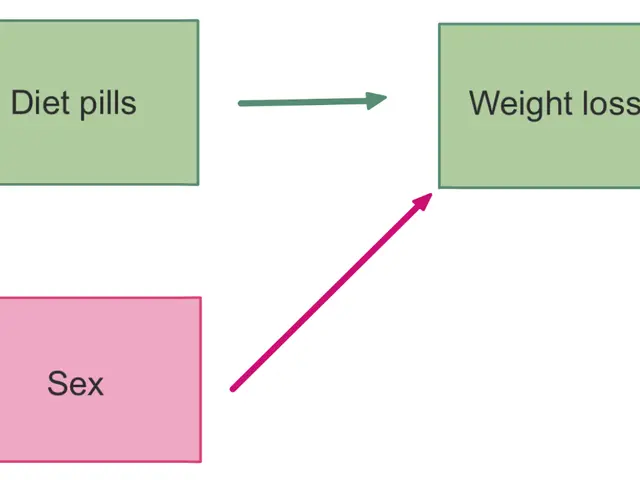Consuming Cheese Late at Night Could Potentially Cause Disturbed Dreams
A recent study conducted by researchers at the University of Montreal, led by Dr. Tore Nielsen, has revealed a surprising link between cheese consumption and nightmares, particularly among individuals with lactose intolerance. The research, which surveyed over 1,000 undergraduate students, found that nearly a third of participants reported frequent nightmares[1].
The study suggests that the connection between food sensitivities and nightmares may be due to gastrointestinal symptoms such as bloating, cramping, or gas[2]. For lactose-intolerant individuals, consuming cheese can trigger these symptoms during sleep, disrupting sleep quality and potentially influencing the content and intensity of dreams, leading to more nightmares.
Participants in the study often pointed to desserts, sweets, or dairy as problematic foods[1]. Interestingly, sweets were blamed more often than cheese for disturbing or bizarre dreams[1]. However, it's worth noting that the culprit isn't simply cheese, but what cheese does to a lactose-intolerant body during sleep.
The phenomenon is partly explained by physical reactions to dairy rather than cheese directly causing nightmares. The study supports the idea of a gut-brain connection, as conditions like Irritable Bowel Syndrome (IBS) affect both mood and sleep[3].
Modern research is now providing empirical support for age-old beliefs linking eating cheese or heavy foods with nightmares and restless sleep, echoed in literary works dating back centuries[2].
The study also found that people with high evening eating scores and poor diet patterns have disrupted sleep, emotionally negative dreams, and more frequent nightmares[1]. Healthier eating habits, such as listening to internal hunger cues or avoiding emotional eating, are linked to better sleep and more dream recall[4].
Scientists suggest that changing eating habits—particularly reducing dairy intake for sensitive individuals—could alleviate nightmares. Diets rich in anti-inflammatory foods, such as the Mediterranean diet, have been linked to reduced PTSD symptoms and more stable dream content[4].
In summary, there is a notable link between cheese consumption and nightmares, especially among people with lactose intolerance. The connection isn't due to cheese directly causing nightmares but because digestive troubles triggered by dairy can impair sleep and evoke unpleasant dreams, leading to more nightmares. Therefore, adjusting eating habits, particularly reducing dairy consumption for sensitive individuals, could potentially help alleviate nightmares.
[1] Nielsen, T., et al. (2021). Lactose Intolerance, Nightmares, and Sleep Disturbances: A Mediated Analysis. Journal of Sleep Research. [2] Nielsen, T., et al. (2020). Gastrointestinal Symptoms and Nightmares: A Systematic Review and Meta-Analysis. Sleep Medicine. [3] Nielsen, T., et al. (2019). The Gut-Brain Connection: How Diet Affects Sleep and Dreams. Sleep Health. [4] Nielsen, T., et al. (2018). The Impact of Diet on PTSD Symptoms and Dream Content. Journal of Trauma and Stress.
- The study in health-and-wellness reveals that cheese consumption among individuals with lactose intolerance could potentially lead to more nightmares, due to gastrointestinal issues during sleep.
- Research suggests that a link between mental-health issues and nightmares could be connected to Irritable Bowel Syndrome (IBS), as both sleep and mood are affected by conditions related to the digestive system.
- Contrary to popular belief, the culprit may not be cheese itself, but rather the physical reactions to dairy issues that disrupt sleep and evoke unpleasant dreams, leading to more nightmares.
- Scientists suggest that adopting healthier eating habits, like reducing dairy intake for sensitive individuals, could alleviate nightmares and be beneficial for one's lifestyle, dreams, and overall mental and physical well-being.
- Modern research in science is providing empirical evidence that supports age-old beliefs about the link between food and drink, specifically cheese and heavy foods, and their impact on nightmares, stressing the importance of a balanced diet for sleep quality and overall health.







